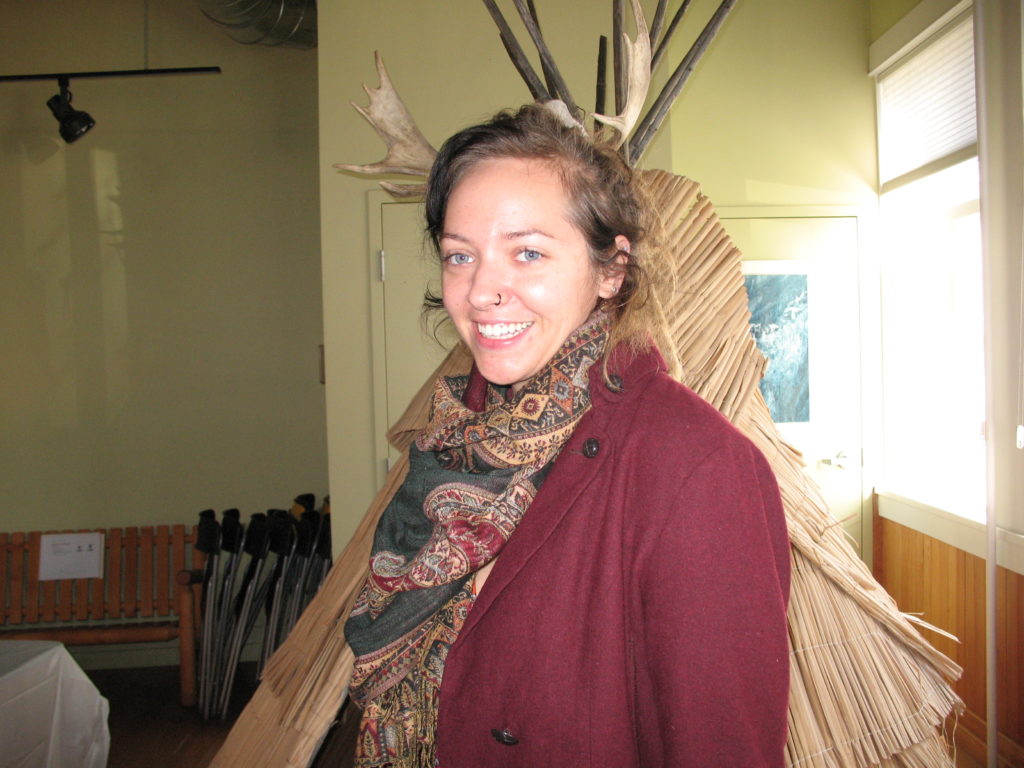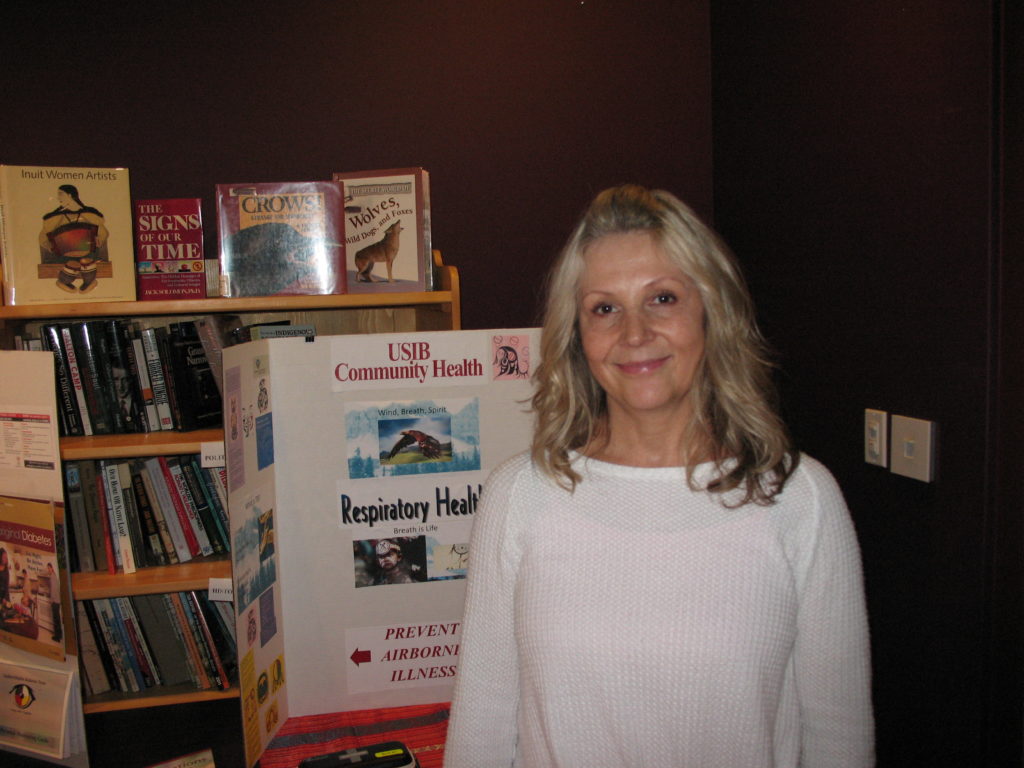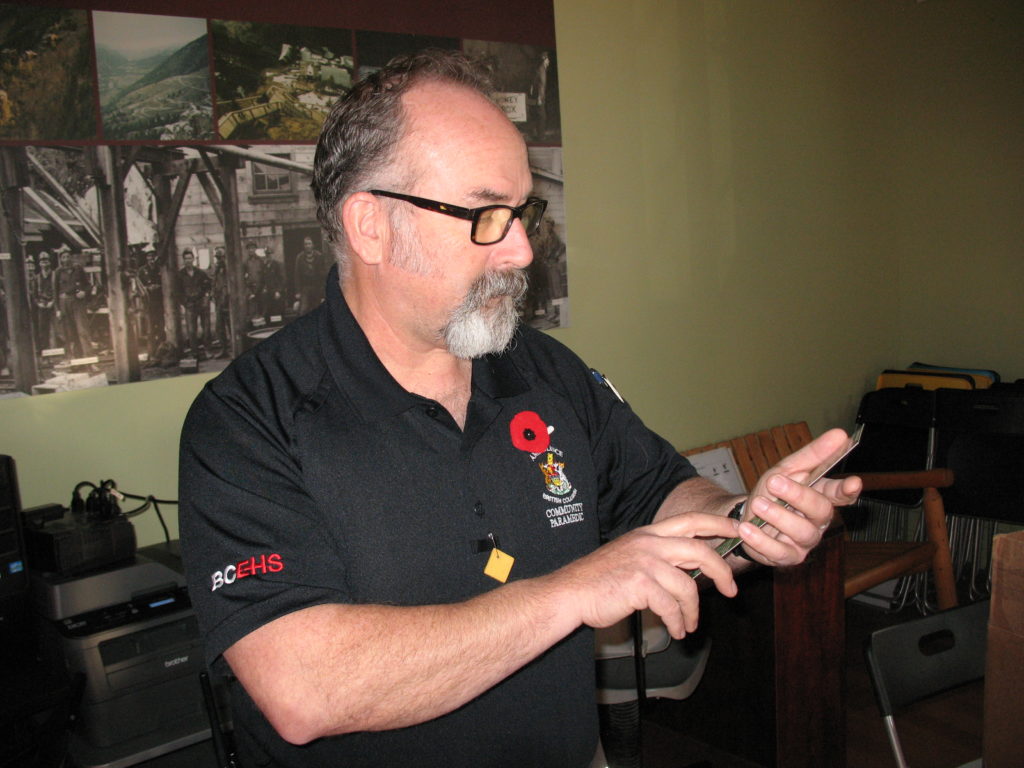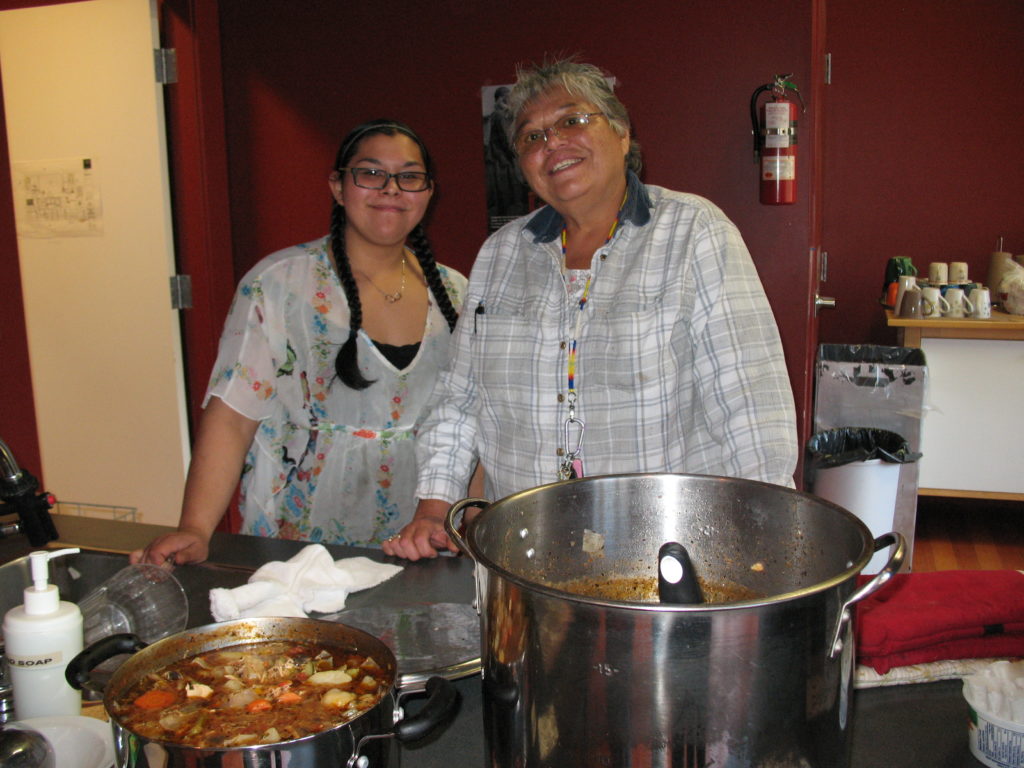
Over many years, I’ve come to understand that when calamitous circumstances enter my life, they usually arrive unanticipated and unannounced. Sometimes I’ve berated myself, asking, “Why didn’t I see it coming? Why didn’t I prepare?” This laxity is not unique to me, of course. It’s an integral aspect of being human. At least in part, the problem arises because we’re preoccupied and may not have easy access to those who can advise us.
The Upper Similkameen Indian Band (USIB) understands that lack of preparedness is an issue also for its members, and is taking steps to bring awareness, knowledge and resources to the reserve. For Linda and me, attending the band’s ChuChuWayha Health and Wellness Fair last Tuesday was surprisingly useful in preparing for challenging, unanticipated events. The forum was directed primarily at band members but much of the information pertains also to Hedley citizens. The community was invited.

Lesli Lorincz, band Home and Community Health nurse explained the purpose of the forum. “We want to give our people an understanding of the services available to them,” she said. “We also want to acquaint service providers with an awareness of our community. It’s important for them to know that when they send someone home from the hospital, if there is an emergency, the patient cannot be quickly returned.” She emphasized this is true also for the entire Similkameen community, She said the band is interested in more interaction with the people of the town of Hedley.

One of the service providers present was Tim Roberts, representing the B.C. Government’s Community Paramedic Medicine Program. He distributed a brochure with information for developing an emergency household preparedness plan. One suggestion was particularly important for parents of young children. “Pack an envelope in your child’s backpack that contains your contact information, a recent photo of your family, health information and special requirements of the child, plus out of town contact information.” The brochure recommends preparing a “grab and go” list. Also, it reminds us to plan for the safety of pets.
We spoke briefly with Tracy Mooney, an Aboriginal Employment Advisor with Community Health Services Centre in Kelowna. She offered a chart showing the level of education needed for positions in the health industry, beginning with senior secondary graduation. Other positions require one to five years of higher education. Five years of university are needed for top positions. Tracy appears to be an excellent resource for band youths charting their future employment.

At noon, Brenda Wagner, a band employee informed us lunch would be served upstairs. We had not anticipated this so it was a welcome surprise. Brenda called the group to order and with great reverence expressed gratitude to The Creator for the meal. Brenda and Breezy Whitney, a band member, had prepared a large pot of chicken stew and another of beef stew. Along with rice, a platter of raw vegetables and other items, it was a sumptuous meal. For dessert, Breezy had prepared a large bowl of pink yogurt with frozen fruit, a dish designed to excite the palate. I confessed to Linda later I had indulged in a second generous helping.
In a talk during lunch, Raina Dawn Lutz, a Registered Health Nutritionist (RHN), presented an assortment of very sensible, practical thoughts about food and its consumption. “Eat all food groups,” she advised. “Be sure this includes plenty of fruits and vegetables.” She isn’t a fan of supplements but said if we do use them, we should look for quality, not for the least expensive brand. She stressed the value of chewing our food well and urged us to be mindful while eating. “Drink plenty of water, at least 6 cups each day,” she said. “It promotes body functions.” I asked Raina later how much water she drinks. “Six to nine cups a day,” she replied without having to think about it. Her flawless skin, trim figure and abundance of energy and humour suggested she practises what she advocates.
Life holds many uncertainties. Whether they are in the realm of health, finances, employment, relationships, environmental disaster, or other, it is tempting to believe they will not overtake us. Too many of us live in a state of denial. For me the fair was a reminder that we need to be aware and proactive. We can take steps to avoid at least some calamitous pitfalls lying hidden in our path. It begins with a decision.
